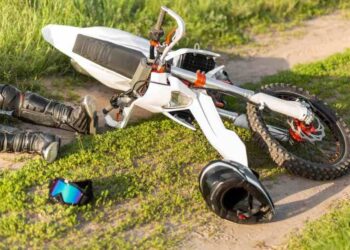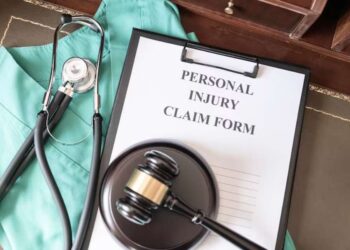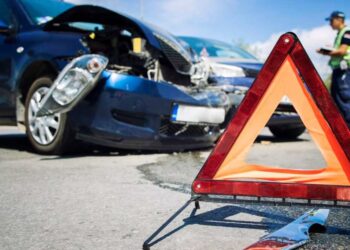Filing an insurance claim after a car accident is critical in recovering damages, but what happens if there’s no police report? Many wonder: Can you claim a car accident without a PA police report? While it may seem like a police report is mandatory, the reality depends on the circumstances of the accident, your insurance policy, and local laws.
A police report is often essential because it provides an official incident record. However, there are scenarios where you can file a claim without one. Having alternative evidence and understanding your insurer’s requirements can make all the difference in these cases. This article explores the nuances of claiming a car accident without a police report, offering actionable insights to help you navigate the process effectively.
Can You Claim Car Accident Without Police Report
You can claim a car accident without a police report in certain situations, depending on your insurer and local laws. While a police report provides an official account of the accident, alternative evidence like photos, witness statements, and repair estimates can often suffice. However, be prepared to provide additional documentation to support your claim and consult your insurance company about their specific requirements.
Do You Always Need a Police Report to File a Claim?
The answer to whether a police report is mandatory for a car accident claim is that it depends. In many cases, especially those involving significant damage or injuries, a police report is a key document that insurers require to validate your claim. However, insurance companies may process your claim without one for minor accidents, such as small fender-benders or parking lot incidents, provided you have sufficient alternative evidence.
Local laws also play a significant role in determining whether a police report is needed. In some jurisdictions, reporting any accident involving injury or damages exceeding a certain amount is mandatory. If you fail to obtain a police report when the law requires, your claim could face rejection or legal complications.
The absence of a police report doesn’t necessarily mean you can’t file a claim. Insurance companies primarily need evidence to assess the validity of your claim. This evidence can include photographs of the accident scene, repair estimates, and statements from witnesses or the other driver. The key is ensuring you compensate for the lack of a police report with detailed and accurate documentation.
Steps to File a Claim Without a Police Report
Gather Alternative Evidence Immediately: If a police report isn’t available, you must rely on alternative evidence to build a strong case. Take clear, high-resolution photos of the accident scene, including all vehicles involved, road conditions, traffic signs, and visible damages or injuries. Photographs of skid marks, debris, or hazardous conditions can also help reconstruct the events leading up to the accident. This type of documentation will serve as critical evidence when filing your claim.
Exchange Information with the Other Driver: While it may seem obvious, exchanging detailed information with the other driver is crucial. Collect their insurance details, contact information, and license plate number. If possible, take a photo of their driver’s license and insurance card to avoid errors. This information will enable your insurer to verify the other driver’s involvement and contact them if necessary.
Obtain Witness Statements: Witness statements can be pivotal in your claim, especially when a police report is absent. Contact anyone who saw the accident and ask for their contact information. Politely request a written or recorded statement of their account while the details are fresh in their minds. These statements can provide unbiased perspectives, strengthening your version of events and supporting your claim.
Document Repair Costs: Keeping a detailed record of all expenses related to the accident is essential. This includes repair estimates, invoices, receipts for vehicle repairs, towing fees, or temporary transportation costs. Such documentation helps substantiate your claim and provides insight into settlement amount factors that may influence how much compensation you can expect. Insurers or legal professionals often consider these factors when calculating fair settlements.
Notify Your Insurance Company: As soon as possible, inform your insurance provider about the accident. Be upfront about the absence of a police report and provide all the evidence you’ve collected, including photos, witness statements, and documentation of repair costs. Prompt notification ensures the claims process begins without unnecessary delays. Many insurance companies have specific procedures for claims without police reports, and following their guidelines is critical to avoid complications.
Consider Legal Advice: If you feel overwhelmed or your insurer offers an insufficient settlement, consult an attorney. Legal professionals can help evaluate your case, negotiate with the insurance company, and ensure you receive the compensation you deserve.
Scenarios Where a Police Report May Not Be Necessary
While police reports are often considered essential, there are specific situations where they may not be required to file a car accident claim. Understanding these scenarios will help you navigate the process if you find yourself without this document.
Minor Accidents
For accidents involving minimal damage and no injuries, a police report may not be required. Insurance companies are often lenient in such cases, especially if both parties agree on the accident details. For example, if a minor fender-bender occurs in a parking lot and results in a few scratches or dents, the insurer may process the claim without an official report. Instead, they will rely on alternative documentation, such as photographs of the damage and written statements from the involved drivers.
That said, exchanging insurance and contact information with the other driver is always a good idea, even in minor accidents. This ensures a clear record of the individuals involved, which can be critical if disputes arise later.
Private Property Incidents
Accidents on private property, such as parking lots, driveways, or residential areas, often don’t require police involvement. Law enforcement may decline to file a report because these locations are outside their jurisdiction. In such cases, it becomes your responsibility to document the accident thoroughly.
For instance, if a vehicle hits your car in a supermarket parking lot and the driver admits fault, insurers will usually process the claim if you provide sufficient evidence. This includes photos, witness statements, and written descriptions of the incident. However, remember that private property accidents can still result in disputes, so thorough documentation is vital.
Unavailability of Police Officers
In certain situations, such as rural areas or during extreme weather, police may be unable to respond to minor accidents. If this happens, you must document the scene by taking clear photos, gathering witness statements, and noting key details like road conditions and vehicle positions. Knowing support insurance claims can be invaluable, ensuring your claim proceeds smoothly despite the lack of police involvement.
Challenges of Filing Without a Police Report
Filing a claim without a police report comes with its fair share of challenges. While it’s not impossible, the absence of this critical document often requires extra effort and thorough preparation. Knowing the potential hurdles can help you anticipate and address them effectively.
Establishing Liability
One of the biggest challenges in filing a claim without a police report is establishing liability. Police reports are considered objective and credible documents detailing the accident’s circumstances. Without one, proving fault becomes more challenging, especially if the other party disputes your account. Insurance companies may require additional evidence, such as witness statements, photos, and surveillance footage, to determine who was at fault.
For instance, in a two-car collision where both drivers blame each other, a police report would typically provide clarity by including observations from the responding officer. Without it, you’ll need to rely heavily on other forms of evidence, which may not always be as compelling.
Increased Scrutiny from Insurers
Insurance companies often scrutinize claims more thoroughly when a police report is missing. This is because the absence of an official account raises questions about the validity of your claim. Insurers may suspect details have been omitted or exaggerated, leading to longer processing times and, in some cases, outright denials.
For example, if you report an accident several days after it and cannot provide a police report, your insurer may question why you didn’t report it sooner. They may also demand additional documentation to verify your version of events, prolonging the claims process.
Limited Evidence Collection
Another challenge is the limited availability of evidence. Police reports often include critical details, such as witness names, weather conditions, and accident scene diagrams. Without this information, building a strong case becomes more difficult.
To compensate, you must ensure your evidence is as comprehensive as possible. This means taking detailed photos, gathering written witness statements, and keeping meticulous records of all communication related to the accident. While this can be time-consuming, it’s necessary to strengthen your claim without a police report.
Legal Implications
In some jurisdictions, failing to file a police report when required by law can have legal consequences. For example, if local laws mandate reporting accidents involving injuries or damages exceeding a certain threshold, neglecting this step could result in fines or other penalties. This can further complicate your claim, as insurers may view your failure to comply with the law as a red flag.
Essential Documentation for Filing a Claim Without a Police Report
Filing a car accident claim without a police report requires comprehensive and well-organized documentation. Since the insurer won’t have access to an official account of the incident, your evidence must fill in the gaps and provide a clear picture of what happened. Here’s what you’ll need:
Photographic Evidence: Photos are one of the most essential tools when filing a claim without a police report. Take clear, high-quality images of the accident scene, including vehicle damage, road conditions, and visible injuries. Make sure to capture multiple angles to provide a complete view of the situation. If there are skid marks, broken glass, or debris, photograph these as well.
For example, if your car was rear-ended at a stoplight, photos showing the damage to both vehicles and the position of the cars can help establish fault. These images can serve as compelling evidence when submitting your claim.
Witness Statements: Witness accounts can be incredibly valuable without a police report. If there were bystanders who saw the accident, ask them to provide written statements describing what they observed. Include their contact information in case your insurer needs to verify their testimony.
For instance, if a witness saw another driver run a red light and hit your vehicle, their statement could corroborate your version of events and strengthen your claim.
Medical Records: Medical records are essential for documenting your damages if you were injured in the accident. These records should include diagnostic reports, treatment plans, and invoices for any medical expenses. The more detailed your documentation, the easier it will be to prove the extent of your injuries and claim compensation.
Repair Estimates: Provide detailed repair estimates or invoices for vehicle damages. If possible, obtain multiple quotes from reputable mechanics to demonstrate the cost of repairs. Your insurer will use this information to assess the extent of the damage and calculate the appropriate payout.
Personal Written Account: Write a detailed account of the accident while the details are still fresh in your mind. Include information such as the date, time, location, weather conditions, and sequence of events leading up to the accident. Be as specific as possible, and avoid making assumptions or speculating about what happened.
Compiling these documents will create a strong case for your claim, even without a police report. While the process may require extra effort, thorough preparation can significantly improve your chances of success.
Conclusion
Filing a car accident claim without a police report is possible, but it requires diligence, thorough documentation, and a clear understanding of the process. While a police report simplifies matters by providing an official record, alternative evidence such as photos, witness statements, and repair estimates can often suffice.
Understanding when a police report is necessary and how to navigate the claims process without one can save you time and frustration. The key is to act promptly, document everything thoroughly, and communicate effectively with your insurer. With the right approach, you can overcome the challenges and secure the compensation you deserve.
FAQs
Q. Can I file an insurance claim for a minor accident without a police report?
A. Many insurers process claims for minor accidents without requiring a police report. Provide alternative evidence like photos and repair estimates.
Q. Is a police report mandatory for all car accidents?
A. Not always. For minor accidents or incidents on private property, a police report may not be required by law or insurers.
Q. What happens if the other driver disputes my version of events?
A. Without a police report, alternative evidence like witness statements and photos will be crucial in proving your case.
Q. How can I strengthen my claim without a police report?
A. Gather as much evidence as possible, including photos, witness accounts, and repair estimates. Be honest and transparent with your insurer.
Q. Can my claim be denied without a police report?
A. While a claim can be more challenging without a police report, insurers may still approve it if you provide sufficient supporting documentation.










